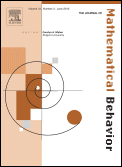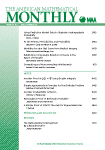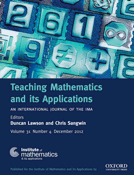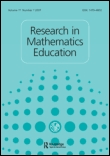
Journal of Mathematical Behavior
Scope & Guideline
Advancing Insights in Mathematical Education
Introduction
Aims and Scopes
- Mathematical Understanding and Cognition:
The journal investigates how students and teachers conceptualize and understand mathematical ideas, including reasoning, problem-solving, and the development of mathematical thinking. - Teaching Practices and Pedagogical Strategies:
Research on effective teaching methods, instructional strategies, and interventions that promote student engagement and understanding in mathematics. - Equity and Diversity in Mathematics Education:
Exploration of issues related to equity, access, and the experiences of diverse student populations in mathematics education. - Integration of Technology in Mathematics Learning:
Studies on the use of digital tools and resources in teaching and learning mathematics, including the impact of technology on student understanding and engagement. - Historical and Cultural Contexts of Mathematics Education:
Examination of how historical and cultural factors influence mathematics teaching and learning, and the relevance of context in the understanding of mathematical concepts. - Qualitative and Quantitative Research Methodologies:
The journal publishes studies utilizing both qualitative and quantitative research methods to provide comprehensive insights into mathematical behavior and education.
Trending and Emerging
- Student-Centered Learning and Agency:
Increasing emphasis on student agency, voice, and personalized learning experiences in mathematics education, reflecting a shift towards more participatory teaching methodologies. - Mathematical Discourse and Communication:
Research focusing on the role of discourse in mathematics learning, including how students articulate their mathematical thinking and engage in discussions. - Emotional and Affective Dimensions of Learning:
Exploration of how emotions and affect influence learning in mathematics, highlighting the importance of emotional factors in student engagement and achievement. - Multilingual and Multicultural Approaches:
Emerging research on the experiences of multilingual learners and culturally relevant pedagogy in mathematics education, promoting inclusivity and diversity in the classroom. - Problem Posing and Creative Problem Solving:
A growing focus on the role of problem posing and creative approaches to problem-solving as essential components of mathematics education. - Collaborative Learning Environments:
Research on collaborative learning and its impact on mathematical understanding, emphasizing the importance of social interactions in the learning process.
Declining or Waning
- Traditional Assessment Methods:
There is a noticeable decrease in research focused on traditional assessment methods in mathematics education, as the field shifts towards more formative and innovative assessment practices. - Purely Theoretical Mathematical Concepts:
Research that solely explores abstract mathematical theories without a direct connection to teaching practices or student understanding has become less prominent, reflecting a growing emphasis on practical applications. - Separation of Mathematics Education from Other Disciplines:
The journal has shifted towards more interdisciplinary studies, leading to a decline in research that treats mathematics education as an isolated field, without connections to psychology, sociology, or history. - Focus on Curriculum Standards Alone:
Research specifically centered on curriculum standards and their implementation without considering broader educational implications or student experiences is becoming less common.
Similar Journals

AMERICAN MATHEMATICAL MONTHLY
Fostering Dialogue Among MathematiciansAMERICAN MATHEMATICAL MONTHLY, published by Taylor & Francis Inc, is a prominent journal in the field of mathematics, recognized for its contribution to the dissemination of mathematical knowledge and pedagogy. With its ISSN 0002-9890 and E-ISSN 1930-0972, this journal has been a cornerstone for mathematicians since its inception, continuing to provide scholarly articles, educational materials, and insights into contemporary mathematical research. Although it follows a subscription model without Open Access options, its Q2 ranking in the Mathematics (miscellaneous) category reflects its reputable standing among peers, emphasized by its Scopus rank in the 22nd percentile. Based in the United States at 530 Walnut Street, Ste 850, Philadelphia, PA 19106, the journal spans topics that cater to both advanced researchers and aspiring students, facilitating an engaging dialogue within the mathematical community.

JOURNAL FOR RESEARCH IN MATHEMATICS EDUCATION
Transforming education through rigorous mathematics research.The JOURNAL FOR RESEARCH IN MATHEMATICS EDUCATION, published by the NATIONAL COUNCIL OF TEACHERS OF MATHEMATICS (NCTM), stands as a premier platform for scholarly discourse in the realm of mathematics education. With an impactful position bolstered by Q1 rankings in both Education and Miscellaneous Mathematics for 2023, this journal has gained notable recognition, ranking 6th out of 90 in the mathematics category and 261st out of 1543 in social sciences education on Scopus. Spanning research outputs from 1996 to 2024, it serves as an invaluable resource for educators, researchers, and students alike, fostering an understanding of innovative teaching methodologies, pedagogical advancements, and mathematical cognition. Though not openly accessible, its rich content is crucial for anyone invested in enhancing mathematics education and supporting the development of effective teaching practices. To explore significant findings and trends in mathematics education, this journal is indispensable for academic professionals aiming to elevate their research and educational strategies.

Edma 0-6-Educacion Matematica en la Infancia
Enhancing Early Learning Experiences Through Mathematics.Edma 0-6-Educacion Matematica en la Infancia is an esteemed academic journal dedicated to exploring the methodologies and practices of mathematics education for children aged 0 to 6 years. Published by the UNIV COMPLUTENSE MADRID, GRUPO INVESTIGACION & DIDACTICA MATEMATICAS, this journal serves as a platform for researchers, educators, and practitioners who aim to enhance early childhood mathematics education through innovative insights and comprehensive studies. While its impact factor is yet to be established, the journal is poised to contribute significantly to the field, promoting an open dialogue on instructional strategies, curriculum development, and pedagogical frameworks. The journal is accessible through its Open Access policy, ensuring that valuable research reaches a wider audience without barriers. With the growing recognition of the importance of early mathematics education, Edma 0-6 aims to be a cornerstone resource, empowering stakeholders to shape meaningful learning experiences for young learners. Submissions and inquiries can be directed to the Department of Mathematics Didactics at the Universidad Complutense de Madrid, located in Madrid, Spain.

Rivista di Matematica della Universita di Parma
Elevating Mathematical Scholarship with Every IssueRivista di Matematica della Universita di Parma is a distinguished academic journal published by UNIV STUDI PARMA that serves as a vital platform for disseminating research in the field of mathematics. Established as a key resource for scholars, this journal has been contributing to the academic landscape since its inception and continues to promote rigorous mathematical discourse. With an ISSN of 0035-6298, it is indexed within the Scopus database, holding a Q3 ranking in Mathematics (miscellaneous) as of 2023. Although it is not an open-access journal, the Rivista di Matematica provides valuable insights and findings essential for advancing the knowledge and application of mathematics, catering to a diverse audience of researchers, educators, and students. Operating from the heart of Italy, specifically from VIA UNIVERSITA 12, PARMA 43100 PR, ITALY, the journal highlights significant advancements and emerging trends in mathematical research, thereby fostering a collaborative and innovative academic environment.

International Journal for Technology in Mathematics Education
Connecting research and practice in math education technology.International Journal for Technology in Mathematics Education (ISSN: 1744-2710, E-ISSN: 2045-2519) is a pioneering platform published by Research Information Ltd that focuses on the interplay between technology and mathematics education. Established to bridge the gap between pedagogical practices and technological advancements, this journal connects researchers, educators, and practitioners in a bid to enhance teaching methodologies and optimize learning outcomes in mathematics. Although its coverage in Scopus was discontinued after 2020, it continues to be a vital resource for those interested in the integration of technology into educational settings. With its significant emphasis on interdisciplinary approaches, the journal has garnered attention in the realms of social sciences and computer science, with Scopus rankings reflecting its niche contributions. This journal is crucial for professionals aiming to explore innovative techniques in mathematics education, making it an invaluable addition to any academic library.

Teaching Mathematics and Its Applications
Advancing Mathematical Literacy Through Research and ApplicationTeaching Mathematics and Its Applications is a prestigious interdisciplinary journal published by Oxford University Press, focusing on innovative pedagogical approaches and research in the fields of mathematics and education. With an impressive impact factor and ranking in the top quartile (Q1) for both education and miscellaneous mathematics categories, the journal is an essential resource for researchers, educators, and practitioners aiming to enhance mathematics teaching and learning. Since its inception in 1982, the journal has provided a platform for the dissemination of cutting-edge research, reviews, and case studies that foster the advancement of mathematical literacy and application across diverse educational settings. While the journal is not open access, its wide reach and the significant Scopus rankings—86th in General Mathematics and 688th in Education—reaffirm its status as a leading authority in the discipline. By emphasizing both theoretical perspectives and practical applications, Teaching Mathematics and Its Applications plays a vital role in shaping the future of mathematics education worldwide.

Vestnik St Petersburg University-Mathematics
Pioneering Discoveries in Diverse Mathematical DisciplinesVestnik St Petersburg University-Mathematics is an esteemed academic journal published by PLEIADES PUBLISHING INC that provides a platform for the dissemination of original research and significant advancements in the field of mathematics. With ISSN 1063-4541 and E-ISSN 1934-7855, this journal's dedicated focus spans various mathematical disciplines, aimed at fostering collaboration and innovation within the global research community. Despite its current positioning in the Q4 category for miscellaneous mathematics and a ranking of #331 out of 399 in Scopus, the journal presents an opportunity for emerging researchers to contribute to the field and enhance their academic profiles. The journal's publication history extends from 2007 to 2024, showcasing a commitment to continuity and scholarly rigor. While it currently does not offer open access options, Vestnik St Petersburg University-Mathematics remains a relevant resource for academics, professionals, and students looking to engage with evolving mathematical theories and applications.

Educational Studies in Mathematics
Exploring Innovative Pathways in Math LearningEducational Studies in Mathematics, published by Springer, is a prestigious journal dedicated to advancing the field of mathematics education. With an impressive impact factor and a distinguished Q1 ranking in both the Education and Mathematics categories as of 2023, the journal plays a vital role in disseminating high-quality research and innovative methodologies. Since its inception in 1968, it has continually provided a platform for educators, researchers, and policymakers to explore the multifaceted relationship between mathematics and education, emphasizing theoretical frameworks, practical applications, and empirical studies. Situated in the Netherlands, this journal boasts a remarkable reputation with its Scopus rankings, placing it among the top percentile in both Mathematics and Social Sciences. Although it does not currently offer open access, Educational Studies in Mathematics remains a crucial resource for those committed to enhancing mathematics education globally.

Teaching of Mathematics
Empowering Educators with Cutting-Edge Pedagogical InsightsTeaching of Mathematics is an esteemed open-access journal devoted to the field of mathematics education, published by DRUSTVO MATEMATICARA SRBIJE in Serbia. Since its inception in 1998, the journal aims to foster scholarly dialogue and disseminate research findings that contribute to the effective teaching and learning of mathematics. Although it currently holds a Q4 ranking in both Education and Miscellaneous Mathematics categories, the journal is dedicated to providing a platform for innovative pedagogical strategies, theoretical discussions, and empirical studies. With an ISSN of 1451-4966 and an E-ISSN of 2406-1077, Teaching of Mathematics offers open access to its content, ensuring that researchers, educators, and students can freely benefit from its contributions. As it converges towards 2024, the journal aspires to enhance its impact and influence within the mathematical education community, encouraging all stakeholders to share their insights and advancements in this critical area of study.

Research in Mathematics Education
Transforming Ideas into Impactful Mathematics Education ResearchResearch in Mathematics Education is a premier academic journal published by Routledge Journals, Taylor & Francis Ltd, focusing on the critical field of mathematics education. Established in 1998, this journal has earned a reputation for fostering innovative scholarship and research that advances the understanding of teaching and learning mathematics. With its impressive Q2 ranking in both Education and Mathematics (miscellaneous) categories for 2023, and a notable Scopus rank of 60th in General Mathematics, it serves as a vital resource for researchers, educators, and policymakers alike. While it does not offer Open Access, the journal’s rigorous peer-reviewed framework ensures that only high-quality articles are published, contributing significantly to both theoretical and applied aspects of mathematics education. Its commitment to excellence is reflected in its ongoing aim to disseminate impactful research, making it an indispensable resource in the academic and educational communities.